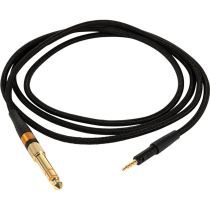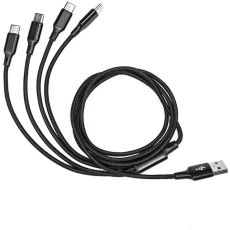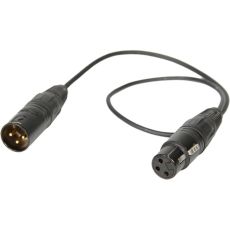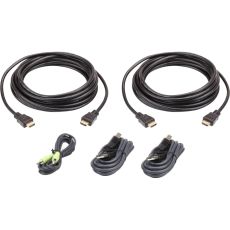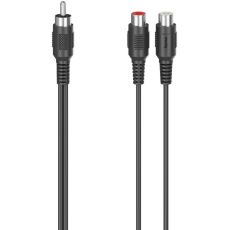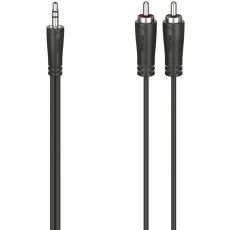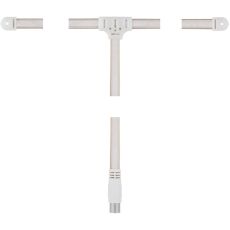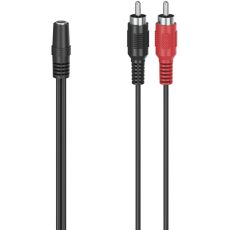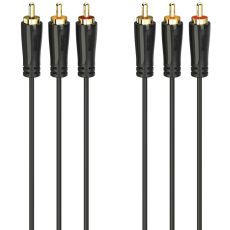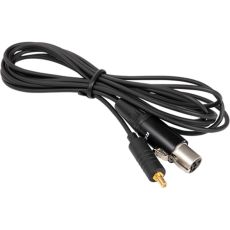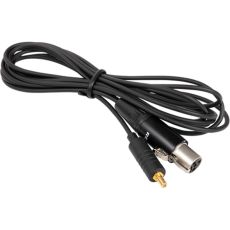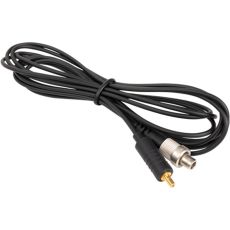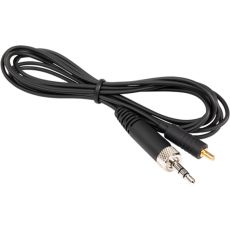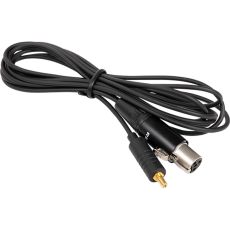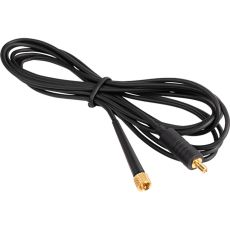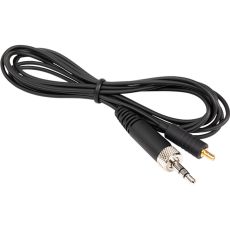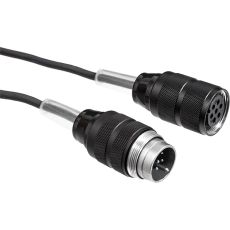What are Audio Cables?
Audio cables are essential components in any audio setup, responsible for transmitting sound signals between devices. They come in various types, including XLR, TRS, and RCA, each serving different purposes in connecting microphones, instruments, mixers, and speakers. High-quality audio cables ensure clear signal transmission and minimal interference, making them crucial for achieving optimal sound quality in recordings and live performances. Selecting the right cable type and quality can significantly impact the clarity and fidelity of your audio, reducing noise and preserving the integrity of the sound. Proper cable management also plays a role in maintaining performance and preventing wear and tear, ensuring your setup functions smoothly over time
In summary, audio cables serve a crucial role in connecting audio equipment by offering durability, flexibility, and facilitating superior sound quality. The inclusion of shielding and gold-plated connectors ensures these cables maintain clear signal transmission while minimizing interference. Investing in high-quality audio cables can significantly enhance the reliability and performance of your audio setup, whether you're creating content, music in a studio, setting up a live stream, or simply enjoying high-fidelity audio at home. By choosing cables that prioritize signal integrity and durability, you can ensure a seamless connection between your devices, allowing you to fully appreciate the nuances of your audio content without distraction or degradation.
Shielding and Isolation
Many audio cables feature shielding to protect against electromagnetic interference, preserving the integrity of the audio signal and reducing noise. This shielding acts as a barrier, isolating the signal from external disturbances such as radio frequencies and electrical currents. High-quality cables often use multiple layers of shielding, enhancing their ability to maintain clear sound transmission. Effective isolation is crucial in both studio and live environments, where various electronic devices can introduce unwanted interference. By minimizing noise and maintaining signal purity, shielded audio cables ensure a more accurate and pristine audio experience.
Copper Wire and Gold-Plated Connectors
Some cables include gold-plated connectors for enhanced conductivity and corrosion resistance, ensuring a stable connection and improved signal clarity. The choice of copper wire in these cables further enhances conductivity due to copper's excellent electrical properties. Copper is widely favored in audio cables for its low resistance and high conductivity, allowing for efficient signal transfer with minimal loss. Combined with gold-plated connectors, which prevent oxidation and maintain consistent performance over time, these cables provide reliable connections essential for professional audio applications. This attention to detail in materials ensures that the audio signals remain pristine from source to output, whether in recording studios, live venues, or home audio setups.
Balanced and Unbalanced Options
Offering both balanced and unbalanced options, audio cables accommodate various audio equipment, ensuring compatibility and optimal performance. Balanced cables use three conductors—typically arranged as two signal wires and a ground—to minimize noise and interference over long distances, making them ideal for connecting professional audio gear like microphones and mixers. Unbalanced cables, on the other hand, are simpler with two conductors—signal and ground—and are commonly used for shorter connections such as between instruments and amplifiers. Choosing the right cable type based on your setup and requirements is crucial for maintaining signal integrity and achieving the best possible sound quality.
Why Choose Audio Cables?
Selecting the right audio cables is essential for ensuring high-quality sound transmission in your audio setup. This range of audio cables is designed to meet the demands of musicians, audio engineers, and content creators with superior durability, effective shielding against electromagnetic interference, and versatile options to suit various applications. Whether you’re setting up a professional home studio, preparing for a live stream, or integrating audio equipment in a multimedia production environment, these audio cables deliver the reliability and clarity needed for exceptional sound reproduction. With careful attention to detail in design and construction, these cables ensure consistent performance and signal integrity, allowing you to focus on your creative process without worrying about connectivity issues or audio quality degradation. When you are looking for the right audio cable then make sure to watch for the following points.
- ✔ The cable type like XLR, TRS (Tip-Ring-Sleeve), RCA (Phono), or others
- ✔ Conductor material like Copper, silver-plated copper, oxygen-free copper
- ✔ Conductor gauge thickness of the conductors for signal transmission
- ✔ Shielding Type Braided shielding, foil shielding, combination shields
- ✔ Dielectric Material Insulating material surrounding the conductors
- ✔ The outer material providing durability and flexibility (e.g., PVC, TPE)
- ✔ Able to reject electromagnetic (EMI) and radio frequency interference (RFI)
- ✔ Flexible and ease of bending and maneuvering the cable without damage.
- ✔ Compliance with industry standards for performance (e.g., RoHS, UL)
Investing in quality audio cables for your studio setup is a foundational step for any content creator striving to achieve professional-grade audio production. These cables play a crucial role in maintaining reliable signal transmission, which directly influences the clarity and fidelity of your recordings or live broadcasts. By opting for well-built cables with effective shielding against electromagnetic interference (EMI) and radio frequency interference (RFI), you can significantly reduce unwanted noise and ensure a clean, pristine audio signal. The durability and reliability of high-quality audio cables are particularly valuable in a studio environment where equipment is frequently moved and connected. Robust connectors and sturdy insulation contribute to longevity, providing peace of mind during intensive recording sessions or live performances. And if you are still unsure about making the right choice for a Audio Cable that fits both your budget and your feature needs, then the customer service of Orinaku is at your disposal to help and advise you on a selection of options tailored to your specific needs. Simply head over to our support page, or our contact page, choose an option to get in touch with us, and we will assist you as best as we can!



